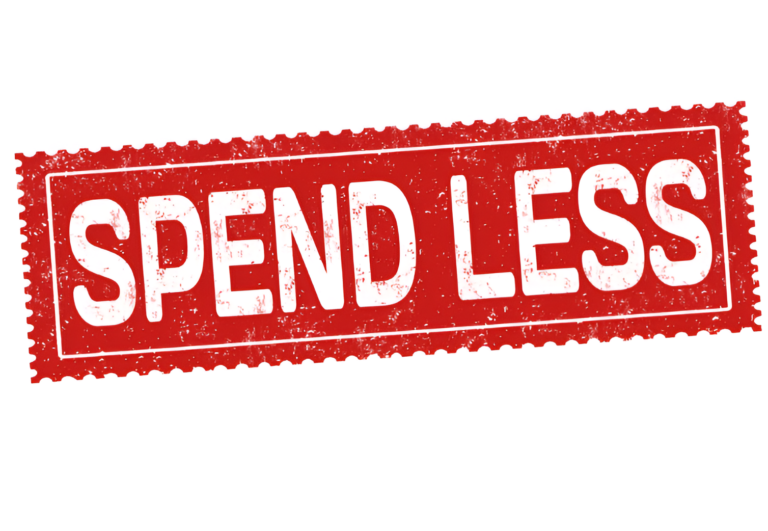Introduction
Personal finance plays a critical role in achieving long-term stability and success. It’s not just about earning money but also about managing it effectively to meet your short-term needs and long-term goals. Developing a solid understanding of personal finance is essential for navigating life’s financial challenges and opportunities.
1. Set Clear Financial Goals
Setting financial goals is essential for effective personal finance management. It provides direction and keeps you motivated to make sound financial decisions. Divide your goals into three categories:
- Short-term goals (up to 1 year): Building an emergency fund, saving for a vacation, or paying off small debts.
- Medium-term goals (1–5 years): Saving for a car, funding higher education, or planning a wedding.
- Long-term goals (5+ years): Retirement planning, buying a house, or creating a college fund.

Tips to Stay Focused
- Set SMART Goals: Make them Specific, Measurable, Achievable, Relevant, and Time-bound (e.g., “Save $5,000 for a vacation by next summer”).
- Prioritize Wisely: Focus on essential goals, like an emergency fund, before discretionary ones.
- Track Progress: Use apps or tools to monitor your savings and adjust as needed.
- Celebrate Milestones: Reward yourself when you achieve key steps to stay motivated.
2. Create a Budget and Stick to It
A budget is a plan that outlines your income and expenses, helping you manage your money effectively. It’s essential for staying in control of your personal finance, avoiding debt, and achieving your goals.

Steps to Create a Realistic Budget
- Track Income and Expenses: Start by recording all your sources of income and where your money goes. This gives you a clear financial picture.
- Categorize Needs vs. Wants: Separate essentials (e.g., rent, utilities, groceries) from non-essentials (e.g., dining out, subscriptions).
- Use Tools or Apps: Budgeting apps like Mint, YNAB, or simple spreadsheets can make tracking easier and more accurate.
- Choose a Budgeting Method:
- 50/30/20 Rule: Allocate 50% for needs, 30% for wants, and 20% for savings or debt repayment.
- Zero-Based Budget: Assign every dollar of income to a specific purpose, leaving nothing unallocated.
3. Build an Emergency Fund
An emergency fund is a savings reserve designed to cover unexpected expenses like medical bills, car repairs, or job loss. It provides financial security and prevents reliance on debt during crises, ensuring better personal finance management in challenging times.
Why It’s Important
Having an emergency fund reduces stress and ensures you’re prepared for unforeseen challenges without disrupting your financial stability.
Recommended Amount
Aim to save 3–6 months’ worth of living expenses. This amount provides a cushion to cover essential costs like rent, utilities, and groceries during difficult times.

Practical Ways to Start Building One
- Set a Savings Goal: Break it into smaller targets, such as saving $1,000 as an initial milestone.
- Automate Savings: Set up automatic transfers to a dedicated savings account to make saving consistent and hassle-free.
- Cut Back on Non-Essentials: Reduce discretionary spending (e.g., dining out or entertainment) and redirect the savings to your fund.
- Use Windfalls Wisely: Allocate bonuses, tax refunds, or gifts to boost your emergency fund.
4. Manage Debt Wisely
Debt management is crucial for maintaining financial health. Understanding the difference between good debt and bad debt can help you make informed decisions, enabling better personal finance control and long-term financial stability.
Types of Debt
- Good Debt: Investments that can increase your net worth or future income, like student loans or a mortgage.
- Bad Debt: High-interest, depreciating obligations like credit card debt or payday loans.

Tips for Reducing Debt
- Prioritize High-Interest Debts: Use the debt avalanche method (pay off debts with the highest interest rates first) to minimize overall costs, or the debt snowball method (pay off the smallest debts first) for psychological motivation.
- Avoid Unnecessary Debt: Borrow only when necessary and ensure it aligns with your financial goals.
- Understand Interest Rates and Terms: Read the fine print to know how interest accrues and the total cost of borrowing.
5. Start Saving and Investing Early
Starting early is key to building wealth over time. The earlier you begin saving and investing, the more you can take advantage of compound interest, where your money earns interest on both the principal and the interest, helping to grow your personal finance more effectively.
Power of Compound Interest
Compounding allows your savings to grow exponentially over time. Even small contributions, when invested early, can grow significantly due to the power of time.

Saving vs. Investing
- Saving: Setting aside money in low-risk, liquid accounts like savings accounts or certificates of deposit (CDs), typically for short-term goals.
- Investing: Putting money into assets like stocks, bonds, or mutual funds with the potential for higher returns over time, but also with higher risk.
Basic Investment Options for Beginners
- Index Funds: Low-cost, diversified funds that track a market index, like the S&P 500.
- Mutual Funds: Pooled funds managed by professionals, providing diversification and a variety of asset classes.
- Robo-Advisors: Automated platforms that create and manage a diversified portfolio for you based on your risk tolerance.
6. Understand Credit Scores
A credit score is a numerical representation of your creditworthiness, based on your credit history. It plays a significant role in determining your ability to secure loans, credit cards, and even affects interest rates and insurance premiums, making it a crucial aspect of your personal finance.
How It Affects Financial Opportunities
A good credit score can help you access better financial products, such as lower interest rates on loans or higher credit limits, while a poor score can lead to higher rates and limited opportunities.

Tips to Maintain or Improve Your Credit Score
- Pay Bills on Time: Timely payments demonstrate reliability and have the biggest impact on your credit score.
- Keep Credit Utilization Low: Aim to use less than 30% of your available credit to improve your credit score.
- Review Credit Reports Regularly: Check your credit reports for errors or discrepancies, and dispute any inaccuracies promptly.
7. Live Below Your Means
Living below your means means spending less than you earn, which is essential for building wealth and financial security. By prioritizing savings and avoiding unnecessary debt, you can achieve your financial goals more easily and maintain better personal finance habits in the long run.

Benefits
- Financial Freedom: Reduced stress and greater flexibility in managing finances.
- Ability to Save and Invest: More money available for savings and investments, accelerating wealth-building.
- Emergency Preparedness: A cushion for unexpected expenses without relying on credit.
Practical Tips
- Avoid Lifestyle Inflation: As your income increases, resist the urge to increase your spending on non-essential items. Instead, redirect extra income toward savings or investments.
- Practice Mindful Spending: Be intentional with your purchases. Prioritize needs over wants and evaluate if an expense aligns with your values and long-term goals.
8. Learn Basic Financial Terms
Financial literacy is crucial for making informed decisions and managing your money effectively. Understanding basic financial terms helps you navigate the world of personal finance with confidence and avoid costly mistakes, setting you up for long-term financial success.

Key Terms to Understand
- APR (Annual Percentage Rate): The interest rate charged on loans or credit cards, expressed as a yearly rate.
- ROI (Return on Investment): A measure of the profitability of an investment, calculated as the gain or loss relative to the investment cost.
- Net Worth: The difference between your assets (what you own) and liabilities (what you owe).
- Inflation: The rate at which the general level of prices for goods and services rises, eroding purchasing power over time.
Suggested Resources for Beginners
- Books: Rich Dad Poor Dad by Robert Kiyosaki, The Richest Man in Babylon by George S. Clason.
- Websites: Investopedia, NerdWallet, and The Motley Fool for explanations and guides.
- Courses: Online platforms like Coursera or Udemy offer beginner-friendly personal finance courses.
9. Take Advantage of Employer Benefits
Employer benefits can significantly enhance your financial well-being, often providing opportunities to save and invest more effectively. Understanding and utilizing these benefits is a smart way to optimize your personal finance and maximize your overall compensation.

Common Benefits
- 401(k) Matching: Employers often match a portion of your contributions to a retirement savings plan, allowing you to save more for retirement.
- Health Savings Accounts (HSA): Tax-advantaged accounts that help you save for medical expenses, with contributions often tax-deductible and withdrawals for qualified expenses tax-free.
- Employee Discounts: Discounts on products or services offered by your employer, which can help save on everyday expenses.
Tips for Maximizing Benefits
- Contribute Enough to Get the Full 401(k) Match: If your employer offers a match, contribute at least enough to take full advantage of it—it’s essentially “free money.”
- Use an HSA for Long-Term Savings: If you have access to an HSA, use it not just for medical expenses, but as a long-term savings tool since funds can grow tax-free.
- Leverage Employee Discounts: Take full advantage of discounts to reduce spending on things you regularly purchase.
10. Continuously Educate Yourself
Financial education is a lifelong journey. The more you learn, the better equipped you are to make informed decisions that align with your goals. Staying educated helps you adapt to changes in the economy, tax laws, and financial products, ensuring a strong foundation for your personal finance.
Importance of Ongoing Financial Education
Financial literacy isn’t a one-time achievement; it’s an ongoing process. Continually improving your knowledge ensures you stay ahead of financial challenges and take advantage of new opportunities.

Resources to Explore
- Books: Titles like The Millionaire Next Door by Thomas Stanley or The Intelligent Investor by Benjamin Graham.
- Podcasts: Listen to shows like The Dave Ramsey Show or BiggerPockets Podcast for tips on budgeting, investing, and financial planning.
- Blogs: Follow blogs like NerdWallet, The Penny Hoarder, or Mr. Money Mustache for updated financial tips and advice.
- Online Courses: Platforms like Coursera, Udemy, or Khan Academy offer beginner to advanced financial courses.
Conclusion
Mastering personal finance is a journey that starts with building a strong foundation. The 10 tips outlined—setting clear financial goals, budgeting, saving, managing debt, investing, understanding credit, living below your means, learning financial terms, utilizing employer benefits, and educating yourself—are all essential steps toward achieving financial wellness.
FAQs
Q. How can I start investing if I’m a beginner?
- Start with simple, low-cost options like index funds or mutual funds, which offer broad diversification. You can also use robo-advisors for automated investment management based on your risk tolerance and goals.
Q. What is the difference between saving and investing?
- Saving typically involves putting money in low-risk, liquid accounts for short-term goals. Investing involves using your money to buy assets like stocks or bonds with the goal of growing wealth over time, but with higher risk.
Q. Can I really live below my means on a limited income?
- Yes! Living below your means is about prioritizing savings and avoiding unnecessary debt, regardless of income level. It’s all about making conscious choices about spending, saving, and investing for your future.


Your post is share-worthy. We loved it and will definitely {share|bookmark) it. Thank you for posting such an insightful post.
Your blog consistently engages my attention from beginning to end. I simply stop reading without devouring every word you write.
Such a useful read.
Thanks for creating this. It’s brilliant work.
More posts like this would make the web more useful.
I really valued the way this was written.
This submission is fantastic.
Such a informative insight.
I discovered useful points from this.